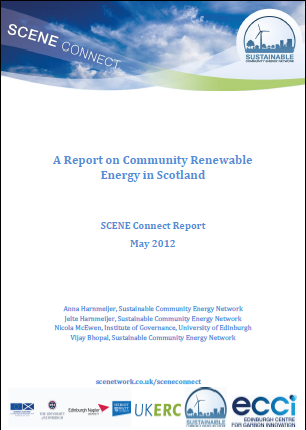Who are Communities?
Communities can be hard to define, but for those who are interested in generating revenue from renewable energy ownership, they must share some identifiable characteristics. First of all, communities must have a legal structure. A legal structure can be anything from a co-op to a development trust or a limited company, i.e. any incorporated body that is capable of entering into structured agreements.
Communities must also have a desire to manage their own energy supplies. While individuals often have different motivations for devoting time and resources to a renewables scheme, their aim must be to gain empowerment through energy ownership. A shared sense of responsibility for bringing a project forward, backed by a willingness to do what it takes to see a project through from conception to completion are both prerequisites for achieving successful outcomes.
Finally, renewable energy projects need community champions. Whether a community be defined by a history of living together in a shared space or a legacy of working together to achieve common goals, dedicated groups of core volunteers or employees must already be in place in order to enter into serious discussions with private sector investors. Leadership, exhibited by community champions with the motivation, skills and know-how to show initiative is essential for building healthy and lasting partnerships with the private sector.
By this definition, communities can be SMEs or religious groups, university departments or sport clubs, urban residents or country townships. Communities can share a living space, or can congregate in a recreational space. They can share a common vision or have completely different visions and share a common activity. Simply put, communities are groups of people and in cases where communities want to develop renewable energy projects, SCENE is there to help them to achieve maximum gains from their efforts.




